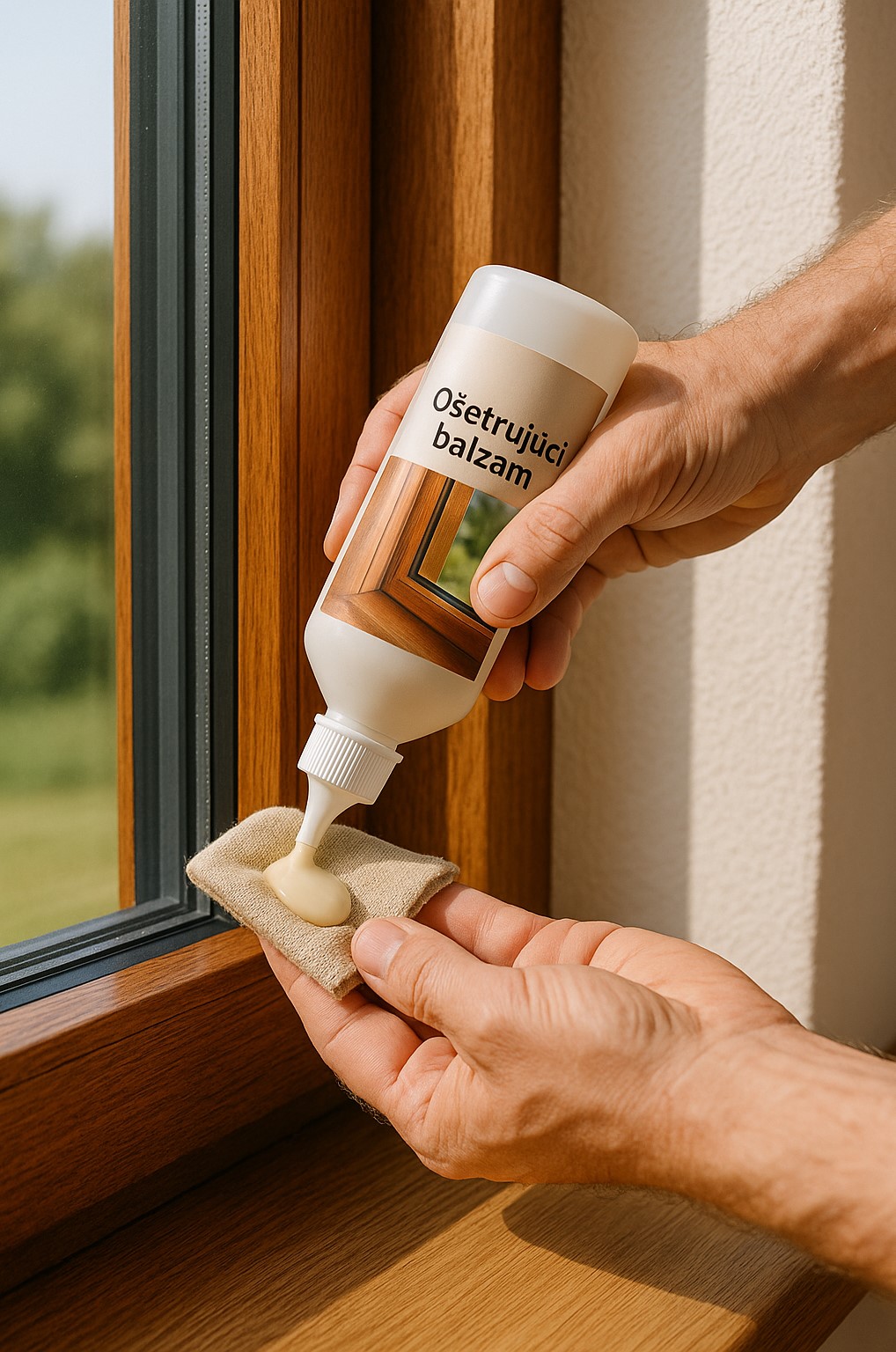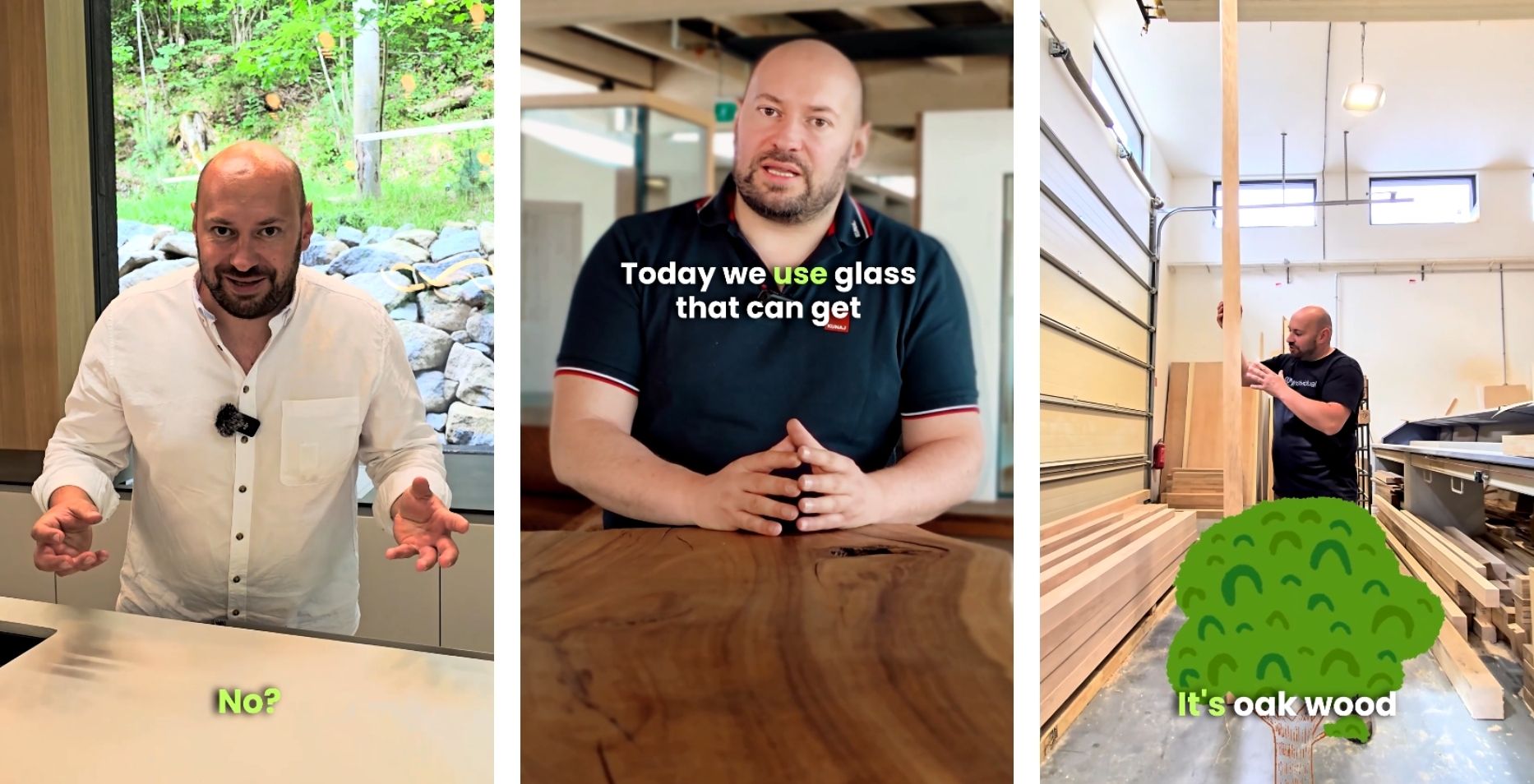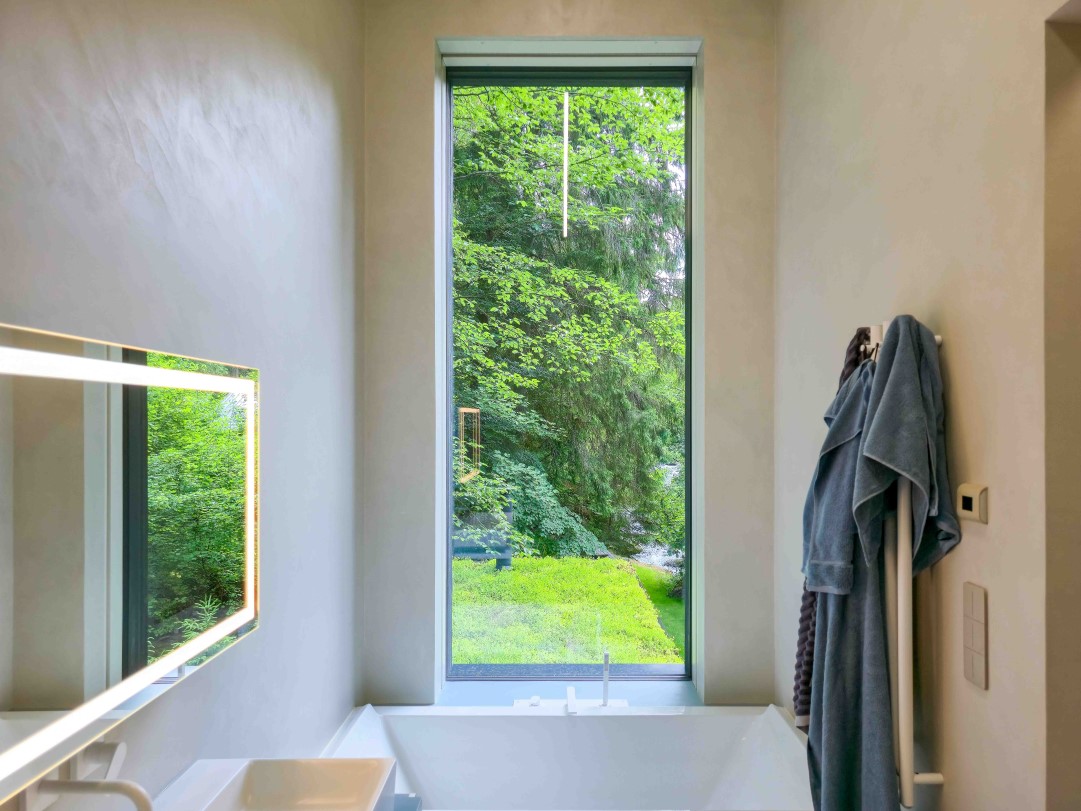Jedným z najväčších rozhodnutí, ktoré musia majitelia domov urobiť pri výmene okien a dverí, je, či zvoliť drevené rámy alebo alternatívu z plastu.
V posledných rokoch sa plastové okná stali čoraz populárnejšie vďaka tomu, že sú vo veľkej miere predávané ako lacnejšie, odolnejšie a s ľahšou údržbou.
Najlacnejšia možnosť však nie je vždy tou najlepšou a predstava, že PVC je efektívnejšie a ľahšie sa oň stará ako o tradičné drevo, je v skutočnosti nesprávna.
Drevené aj plastové okná majú skutočne svoje výhody a nevýhody – nižšie sa pozrieme na oba typy rámov, aby sme vám pomohli rozhodnúť sa, ktorý z nich je pre vás tou správnou voľbou.

Vzhľad
Väčšina novopostavených domov má plastové okná, pretože sú vo všeobecnosti sériovo vyrábané a vyhovujú štandardným veľkostiam okien používaných masovou výstavbou.
Na vzhľade týchto okien nie je nič zlé a pri správnej špecifikácii sa určite môžu hodiť aj do modernejších domov a bytov.
Drevené okná sú na druhej strane často na mieru, vďaka čomu sú ideálne ako pre dobové a staršie domy, tak aj pre ultra moderný štýl, pretože sa dajú prispôsobiť na mieru a sú esteticky výnimočné.
Zatiaľ čo plastové okná sú obmedzené vo svojom štýle, dizajne a farbe, drevené okná prichádzajú so širokou škálou špecifikácií, štýlov a povrchových úprav.
Drevené rámy môžu byť tiež dvojfarebné, čo znamená, že si môžete vybrať inú farbu pre vnútorné a vonkajšie rámy.

Efektívnosť
Čo sa týka tepelnoizolačných vlastností okien a dverí, typ použitého zasklenia je nepochybne jeden z najdôležitejších faktorov.
Takzvané trojsklo je energeticky oveľa účinnejšie ako dvojsklo, ktoré sa často používa pri plastových oknách. Rôzne zasklenia sa dajú vybrať aj s rôznymi vlastnosťami, ako napríklad zvukovo izolačné, bezpečnostné, zrkadlové, atď....
Samozrejme, vplyv má aj materiál, z ktorého sú rámy okien vyrobené a drevo je jedným z najlepších tepelnoizolačných materiálov – bez ohľadu na sklo vo vnútri rámu.

Údržba
Jednou z mylných predstáv o drevených oknách je, že vyžadujú veľa údržby a starostlivosti, aby sa zabezpečilo, že budú vyzerať čo najlepšie.
Zatiaľ čo rámy z PVC sa nepochybne ľahko udržiavajú v čistote – vo väčšine prípadov ich stačí utrieť vodou – drevené rámy sú odolnejšie a majú dlhšiu životnosť.
Pri správnej povrchovej úprave a pravidelnej údržbe bude potrebné drevené okno pretrieť každých desať až 15 rokov a medzitým je možné ich vyčistiť rovnakým spôsobom ako PVC. Moderné náterové systémy nevyžadujú pracné brúsenie, ktoré si vyžadujú staré olejové farby.
Okrem toho, ak sa drevený rám okna poškodí, dá sa ľahko opraviť, zatiaľ čo poškodený rám z PVC je zvyčajne potrebné vymeniť.
Ak sa o rám dreveného okna správne staráte, môže vydržať celý život, zatiaľ čo priemerná životnosť plastového okna je zvyčajne okolo15-20 rokov v závislosti na degradácií plastu.

Vplyv na životné prostredie
Ropa tvorí 43 % suroviny potrebnej na výrobu PVC. Niečo, čo je vyrobené z neobnoviteľných zdrojov, nemožno klasifikovať ako trvalo udržateľné, zatiaľ čo drevené okná vyrobené zo stromov z trvalo udržateľných zdrojov spôsobia výrazne menšiu záťaž pre životné prostredie a často môžu predstavovať „uhlíkovo negatívny“ proces.
Pri rozhodovaní je potrebné zvážiť, že iba 3 % odpadového PVC sa recykluje a zvyšok sa buď spáli alebo ide na skládku. Drevené okná určite vyhrávajú v tomto súboji.

Náklady
Počiatočné náklady na inštaláciu plastových okien sú nepochybne nižšie ako pri alternatívnych drevených oknách, ale keď vezmete do úvahy životnosť tých druhých oproti prvým, drevo môže vyjsť lacnejšie.
Vo väčšine prípadov môže inštalácia kvalitných drevených rámov pridať hodnotu vašej nehnuteľnosti a tiež znížiť náklady na účty za energiu.
Rozhodnutie, či si vybrať drevené alebo plastové okná, bude pravdepodobne závisieť od vzhľadu, ktorý hľadáte, a od rozpočtu, ktorý môžete minúť.
Ale po zvážení všetkých aspektov, drevené okná ponúkajú vynikajúcu estetiku, jednoduchú údržbu, oveľa dlhšiu životnosť a väčšie úspory nákladov v priebehu času.
Cítite inšpiráciu? Kontaktujte náš tím a zistite, ako vám môžeme pomôcť spraviť z Vášho domu domov.
































)%20(1).png)


































































